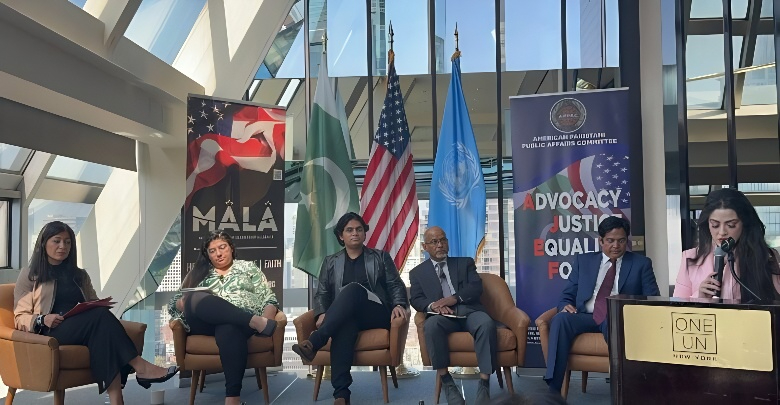Islamabad, Sep 14: During a panel discussion, experts from a variety of environmental and health sectors stated that Pakistan was severely suffering from the consequences of climate change and that Pakistan needed international assistance to find a long-term solution to deal with the issue’s mounting issues.
During the 79th session of the UN General Assembly, the Muslim American Leadership Alliance and the American Pakistan Public Affairs Committee convened a unique panel discussion at One UN Plaza to examine climate change and long-term solutions.
Maha Rashid Khan, the board chair of MALA, gave the attendees an introduction and emphasized the discussion’s focus. The last debate had participation from Aleena Majeed, the second secretary of Pakistan’s mission to the UN, Dr. Pervez Iqbal of APPAC APPEC, and Avishan Bodjnoud, the chief moderator of the UN information management unit.
The presenters emphasized the significance of this exchange. According to them, Pakistan contributes less than 1% of the world’s carbon emissions, despite having lost more than $30 billion in the previous flood.
 Dr. Shakeel Sagheer of the Ohio Department of Health and others took part in the conversation. According to the speakers, the rapid melting of glaciers is a result of rising carbon emissions and inadequate construction of dams, which not only results in water loss but also floods.
Dr. Shakeel Sagheer of the Ohio Department of Health and others took part in the conversation. According to the speakers, the rapid melting of glaciers is a result of rising carbon emissions and inadequate construction of dams, which not only results in water loss but also floods.
Due to a personal obligation, former California governor Arnold Schwarzenegger was unable to take part in this unique conversation on the effects of climate change. Maha Khan of MALA read the audience Arnold Schwarzenegger’s message. He said that in order to prevent the wastage of natural resources, we must all cooperate.









